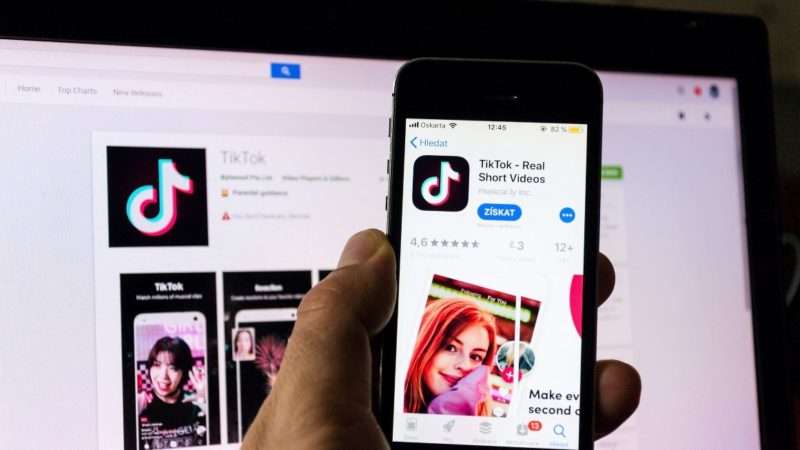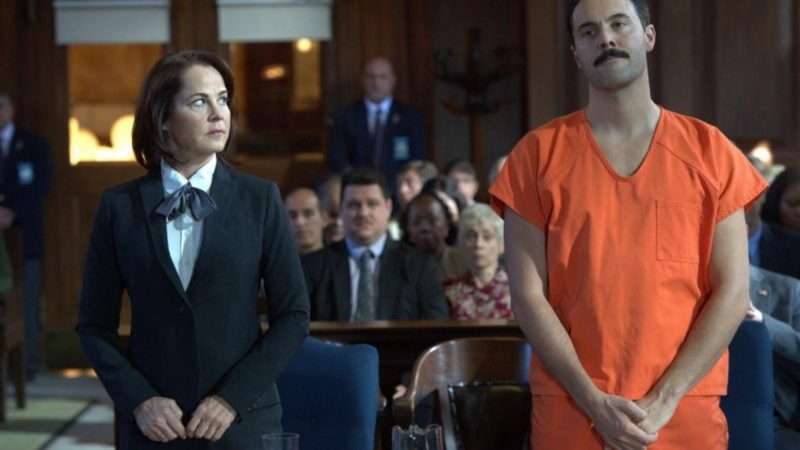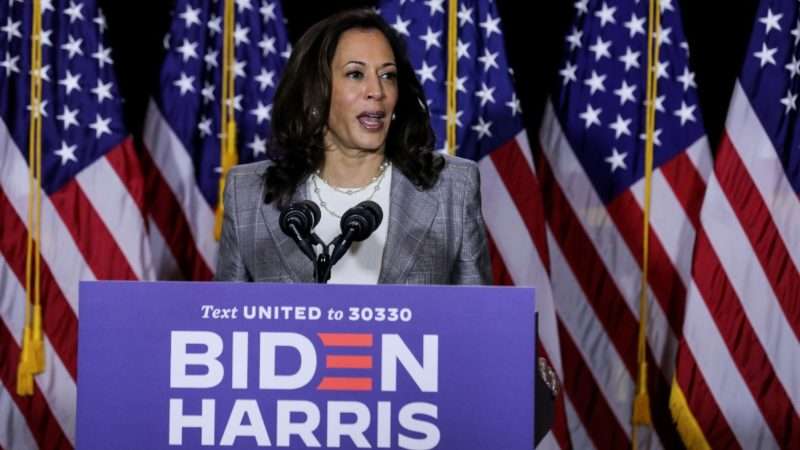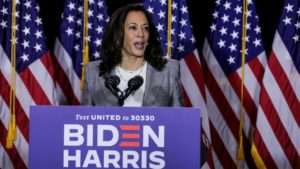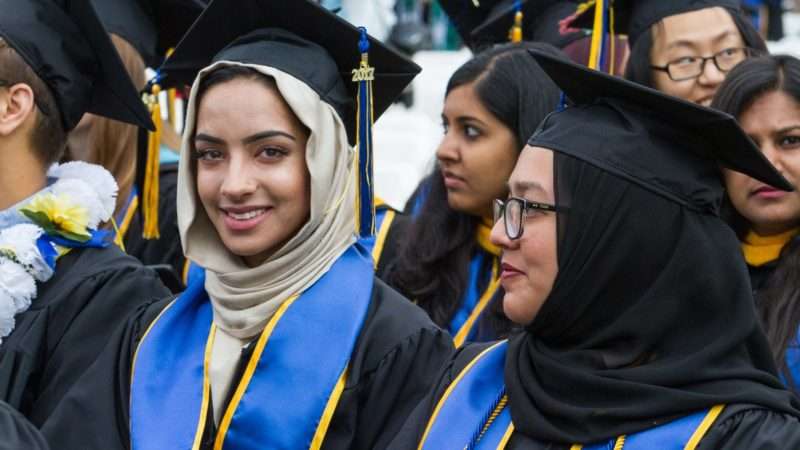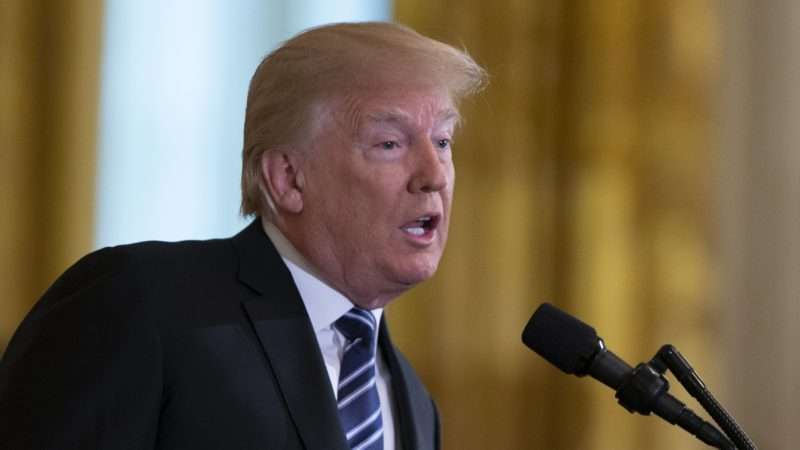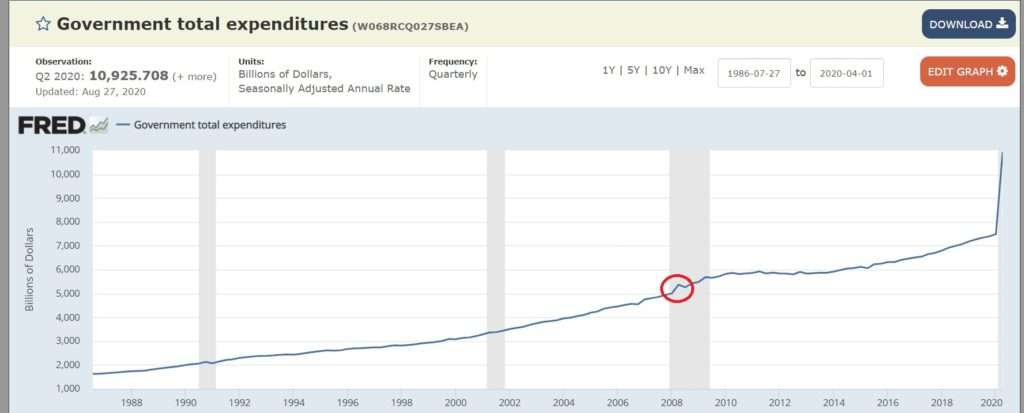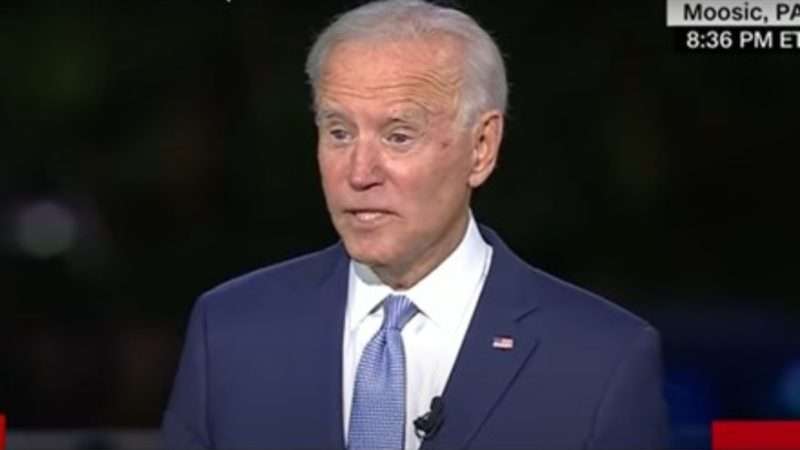
Joe Biden, who as recently as Wednesday was claiming he would have the authority as president to impose a nationwide mask mandate, suddenly reversed himself last night. “I cannot mandate people wearing masks,” the Democratic presidential nominee admitted during a CNN “town hall,” adding that he could still require masks in federal buildings and on federal land.
That concession represents an embarrassing retreat for Biden, who has been talking for months about forcing Americans to cover their faces in public. “I would insist that everybody out in public be wearing that mask,” he said in a June 25 interview with a local TV reporter in Pittsburgh. When asked if he would “use your federal leverage to mandate that,” Biden replied: “Yes, I would. From an executive standpoint, I would….I would do everything possible to make it required that people had to wear masks in public.”
Biden reiterated that promise at the Democratic National Convention last month. “If I’m your president,” he said, “on day one we’ll have a national mask mandate.”
Speaking to reporters in Delaware on Wednesday, Biden said he had been consulting with his legal advisers about an executive order that would mandate masks in states that have not imposed such a requirement. “Our legal team thinks I can do that, based upon the degree to which there’s a crisis in those states, and how bad things are for the country,” he said.
Either Biden’s legal advisers changed their minds, he misunderstood their advice, or he reconsidered the electoral implications of campaigning for president as the guy who wants to unilaterally impose a requirement that remains controversial even among people who acknowledge the value of masks in reducing virus transmission. While a recent Harris poll found that a large majority of Americans support a national mask mandate, the question did not specify whether that policy would be enacted by Congress or decreed by the president. Furthermore, if people who oppose a mandate feel more strongly about the issue than people who support that policy (as seems plausible), Biden’s old stance might have alienated more voters than it attracted.
President Donald Trump, who has sent mixed messages about masks but has never been shy about asserting powers he does not actually have, seized on Biden’s plan to mandate face coverings as evidence of his opponent’s dictatorial ambitions. “He wants the president of the United States, with the mere stroke of a pen, to order over 300 million American citizens to wear a mask for a minimum of three straight months…no matter where they live,” Trump said at a press briefing last month. “He does not identify what authority the president has to issue such a mandate or how federal law enforcement could possibly enforce it or why we would be stepping on governors throughout our country, many of whom have done a very good job and they know what is needed….If the president has the unilateral power to order every single citizen to cover their face in nearly all instances, what other powers does he have?”
Trump’s respect for federalism and constitutional limits on presidential power is highly selective, of course. This is the same man who last April asserted “total” authority over COVID-19 lockdowns, saying “the president of the United States calls the shots.” Other signs of Trump’s situational commitment to obeying legal constraints on his authority include his extralegal ban on bump stocks; his determination to build a border wall that Congress has refused to fund; his talk of punishing news organizations that annoy him by yanking broadcast licenses and loosening libel laws; his threat to withhold congressionally appropriated money from states that allow wide use of mail-in ballots; and his administration’s nationwide eviction moratorium—which, like the mask mandate Biden now admits he can’t impose, was presented as a response to COVID-19.
That last policy, which Centers for Disease Control and Prevention (CDC) purported to establish this month, is supposedly based on the agency’s authority under the Public Health Service Act. A regulation issued under that statute says the CDC’s director may “take such measures” he “deems reasonably necessary” to stop the interstate spread of communicable diseases, “including inspection, fumigation, disinfection, sanitation, pest extermination, and destruction of animals or articles believed to be sources of infection.”
As South Texas College of Law professor Josh Blackman has noted, such a broad reading of the CDC’s authority is highly implausible in light of the specific examples cited in the regulation on which the agency is relying. George Mason law professor Ilya Somin likewise warns that the eviction moratorium undermines property rights, federalism, and the separation of powers.
If the CDC can, in the name of disease control, force landlords to house people who do not pay their rent, it can impose pretty much any requirement under that heading—including the mask mandate that both Trump and Biden now agree cannot be imposed by the executive branch. Given the Trump administration’s broad reading of the CDC’s authority, the only thing preventing Trump from mandating masks may be his personal antipathy toward them, combined with a political calculation that such a decree would not go over well with his supporters.
As for Biden, there is not much in his long political career that suggests he draws a distinction between what he wants to accomplish and what the Constitution allows. When he mentioned the Constitution during a Democratic presidential debate last year in connection with Kamala Harris’ plan to impose gun control by executive fiat, it was striking precisely because he rarely acknowledges limits to presidential authority when they get in the way of policies he likes. Biden’s view of presidential war powers, for example, was the broadest of any laid out by this year’s Democratic contenders.
In short, there is little reason to believe that Trump or Biden will eschew presidential power grabs simply because they both now agree that an executive order requiring face masks would be a step too far. But I guess we should be grateful that either of them acknowledges there are some things the president cannot do.
from Latest – Reason.com https://ift.tt/3kuogb7
via IFTTT
